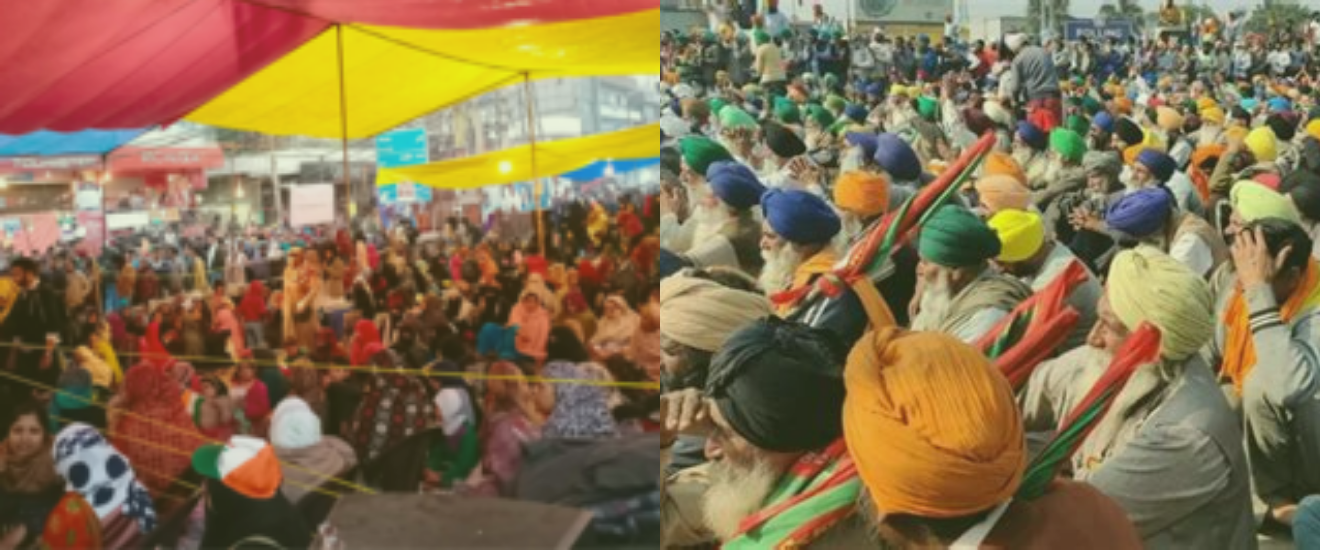Analysis
Recasting the Right to Protest: Shaheen Bagh to Lakhimpur Kheri
We discuss the Supreme Court's engagements with the farmers' right to protest in the context of the Heckler's Veto principle.

In September 2020, Parliament enacted three farm laws which were heavily contested by farmers, farmers rights groups and opposition political parties. The laws were challenged in the Supreme Court (SC). The SC stayed the enactment of the laws and constituted a committee to facilitate negotiations between farmers and the Union Government in January 2021.
On July 27th 2021, the Kisan Mahapanchayat filed a petition seeking permission to protest the farm laws at Jantar Mantar, New Delhi. On October 4th the Bench, constituted by Justices A.M. Khanwilkar and C.T. Ravikumar, heard the petition and criticised the act of conducting protests when the laws in question had already been stayed.
Further, the Bench asked whether the right to protest (provided under the freedom of speech and expression) was ‘absolute’ and whether protests could take place over subject matter that was still being heard by the Court (sub-judice i.e. under judicial consideration). In their order that followed, the Bench decided to examine this question further over the course of the hearings.
This would be the Court’s latest foray in deciding the scope of the right to protest. They had most recently done so in the Shaheen Bagh Case.
No Right to Protest Indefinitely
On October 7th 2020 the SC in Amit Sahni v Commissioner of Police, while upholding the right to protest, further held that such protests cannot indefinitely occupy public spaces and must be balanced with the rights of others. The right to protest can be tempered by reasonable restrictions in the interest of public order.
In the current case as well, Attorney General (AG) K.K. Venugopal brought up concerns of protests continuing over a long period of time. He referred to the violence that took place on October 3rd during a protest in Lakhimpur Kheri where eight people were killed after a vehicle was driven at full speed into the protestors. Khanwilkar J reportedly agreed with the AG, stating ‘When such events happen, no one takes responsibility! There is damage to property…’
Allegations of murder have been made against Ashish Mishra, the son of Ajay Mishra the Union Minister for Home Affairs. The protest in question was reportedly in response to the latter’s comments about the farmers’ protests.
Anticipating Opposition and Restricting Speech
The ‘Heckler’s Veto’ is a concept whereby restrictions on speech are accepted due to an anticipated hostile reaction from opponents of that speech. The term was first seen used by a Court in the Supreme Court of the United States (SCOTUS) case Brown v State of Louisiana (1966). This was part of a line of cases regarding peaceful protests against segregation laws in Louisiana, where the protestors were convicted of ‘breaching the peace’ by the domestic courts. In all of these cases, the SCOTUS reversed the conviction and stated that the protests were peaceful, and stated that it was the critics of these protests who may react with disorder and violence. In doing so, they rejected the imposition of a heckler’s veto.
With the farmer’s protests, the Indian Supreme Court faces a similar question. Section 144 of the Code of Criminal Procedure has already been imposed in Lakhimpur, restricting further protests to prevent tensions from rising. Further restricting the right to protest after Khanwilkar J’s response to the AG’s observations on the Lakhimpur Kheri incident could result in a situation that the SCOTUS tried to avoid. It would allow the disorderly and violent reactions of those who opposed the protests to play a role in silencing them further by holding the protestors responsible.
